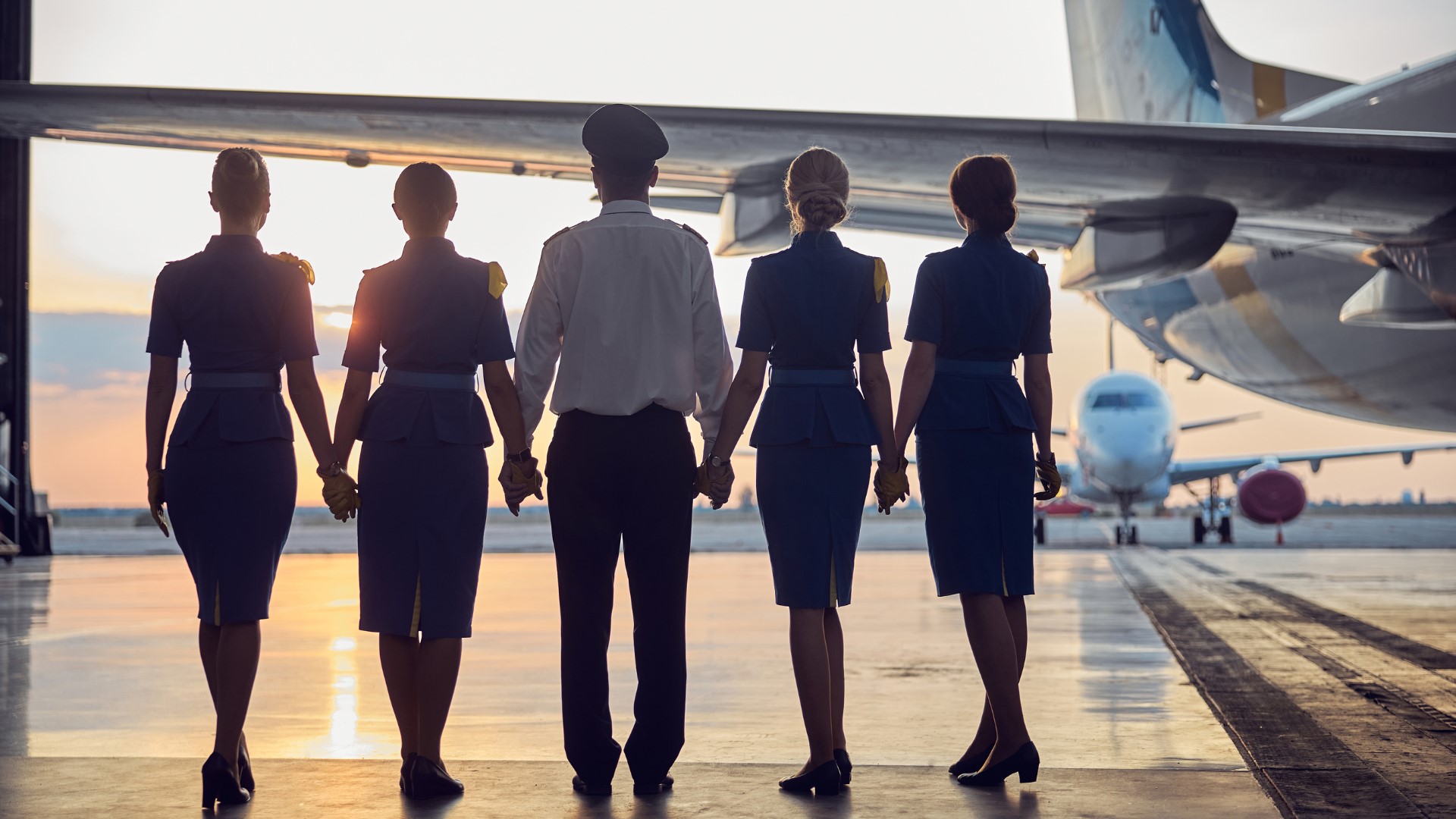
Ever wondered what it takes to soar through the skies as a pilot or work behind the scenes in aviation? Aviation careers are more than just flying planes; they encompass a wide range of roles that keep the aviation industry running smoothly. From air traffic controllers to aircraft mechanics, each position plays a crucial part in ensuring safe and efficient air travel. In this post, we’ll uncover 13 fascinating facts about aviation careers that might surprise you. Whether you're dreaming of becoming a pilot or curious about the various opportunities in aviation, these insights will give you a clearer picture of what to expect in this dynamic field. Buckle up and get ready to learn!
Key Takeaways:
- Aviation careers, from pilots to air traffic controllers, require extensive training, continuous learning, and excellent communication skills. The industry also offers diverse opportunities beyond the more well-known roles.
- Becoming a pilot demands rigorous training, medical fitness, and continuous learning. Air traffic controllers face high stress levels, rigorous training, and the need for excellent communication skills. Aircraft maintenance technicians require technical expertise, certification, and meticulous attention to detail. Flight attendants undergo safety training, need customer service skills, and face physical demands. The aviation industry offers a wide range of career opportunities beyond the more well-known roles.
The Fascinating World of Aviation Careers
Aviation careers offer a unique blend of excitement, responsibility, and opportunity. From pilots to air traffic controllers, each role plays a crucial part in keeping the skies safe and efficient. Here are some intriguing facts about aviation careers that might surprise you.
Becoming a Pilot
Becoming a pilot is a dream for many, but it requires dedication and rigorous training. Here are some key points about this prestigious career.
-
Extensive Training: Pilots undergo extensive training, including obtaining a private pilot license (PPL) and a commercial pilot license (CPL). This process can take several years and involves both ground school and flight hours.
-
Medical Fitness: Pilots must pass stringent medical exams to ensure they are fit to fly. These exams check for physical and mental health issues that could impair their ability to operate an aircraft.
-
Continuous Learning: Even after becoming certified, pilots must undergo regular training and assessments to keep their skills sharp and stay updated with the latest aviation regulations.
Air Traffic Controllers
Air traffic controllers play a vital role in managing the safe and efficient flow of aircraft in the skies and on the ground. Their job is both challenging and rewarding.
-
High Stress Levels: The job of an air traffic controller is considered one of the most stressful due to the high stakes and constant need for precision and quick decision-making.
-
Rigorous Training: Becoming an air traffic controller requires specialized training, often provided by government agencies. This training includes simulations and real-world practice.
-
Excellent Communication Skills: Controllers must have excellent communication skills to convey clear and concise instructions to pilots, ensuring safety and efficiency.
Aircraft Maintenance Technicians
Aircraft maintenance technicians (AMTs) ensure that aircraft are safe and ready for flight. Their work is critical to the aviation industry.
-
Technical Expertise: AMTs need a deep understanding of aircraft systems and components. They often specialize in areas such as avionics, engines, or airframes.
-
Certification Requirements: Technicians must obtain certification from aviation authorities, which involves passing exams and gaining practical experience.
-
Attention to Detail: The job requires meticulous attention to detail, as even minor errors can have significant consequences for flight safety.
Flight Attendants
Flight attendants are the face of the airline industry, providing customer service and ensuring passenger safety during flights.
-
Safety Training: Flight attendants undergo extensive safety training, including emergency procedures, first aid, and evacuation techniques.
-
Customer Service Skills: They must have excellent customer service skills to handle a wide range of passenger needs and situations, from routine service to managing in-flight emergencies.
-
Physical Demands: The job can be physically demanding, requiring long hours on their feet and the ability to handle heavy luggage and equipment.
Diverse Career Opportunities
The aviation industry offers a wide range of career opportunities beyond the more well-known roles.
- Variety of Roles: Careers in aviation are not limited to pilots and flight attendants. Opportunities exist in areas such as airport management, aviation law, aerospace engineering, and aviation safety. Each role contributes to the overall functioning and safety of the aviation industry.
Taking Flight in Aviation Careers
Aviation careers offer a world of opportunities. From pilots to air traffic controllers, the industry needs a variety of skills. Pilots get the thrill of flying, while mechanics ensure everything runs smoothly. Flight attendants provide safety and comfort to passengers. Air traffic controllers keep the skies organized. Each role is crucial for safe and efficient travel.
Training and education are key. Many positions require specific certifications and degrees. The industry also values experience and continuous learning. Staying updated with the latest technology and regulations is essential.
Job stability and growth are strong in aviation. The demand for air travel continues to rise, creating more job opportunities. Plus, the industry offers competitive salaries and benefits.
If you’re passionate about aviation, consider exploring these careers. The sky’s the limit!
Frequently Asked Questions
Was this page helpful?
Our commitment to delivering trustworthy and engaging content is at the heart of what we do. Each fact on our site is contributed by real users like you, bringing a wealth of diverse insights and information. To ensure the highest standards of accuracy and reliability, our dedicated editors meticulously review each submission. This process guarantees that the facts we share are not only fascinating but also credible. Trust in our commitment to quality and authenticity as you explore and learn with us.


